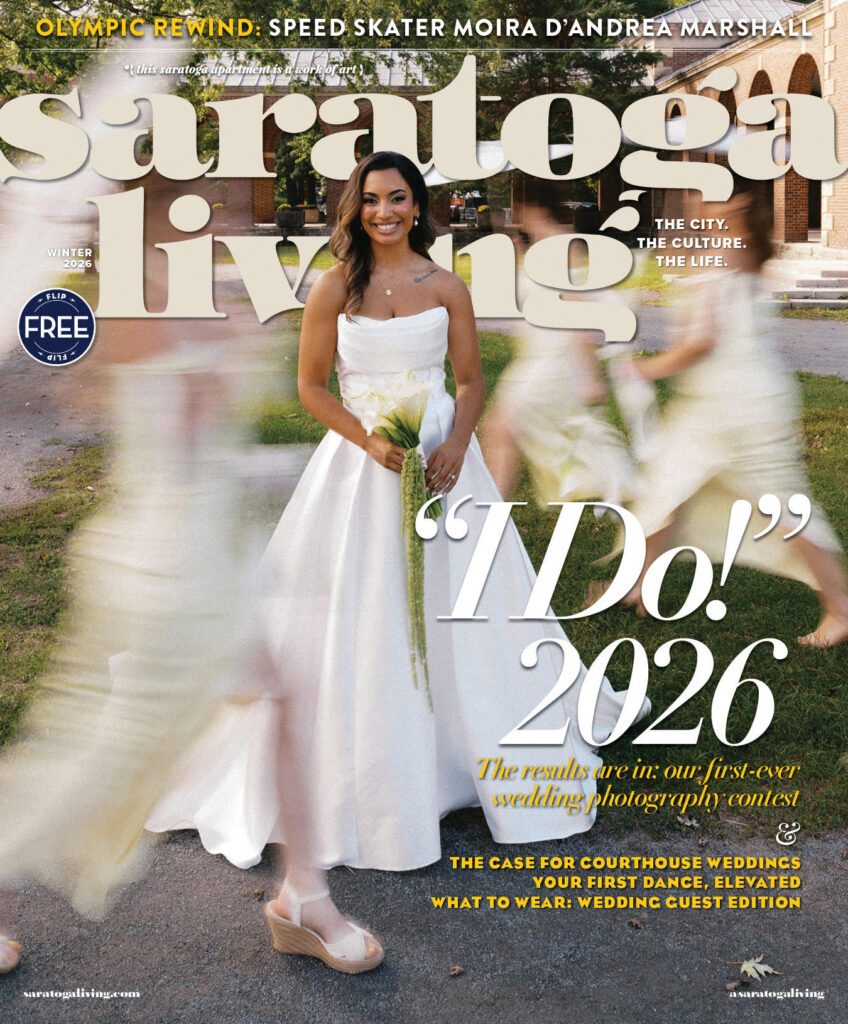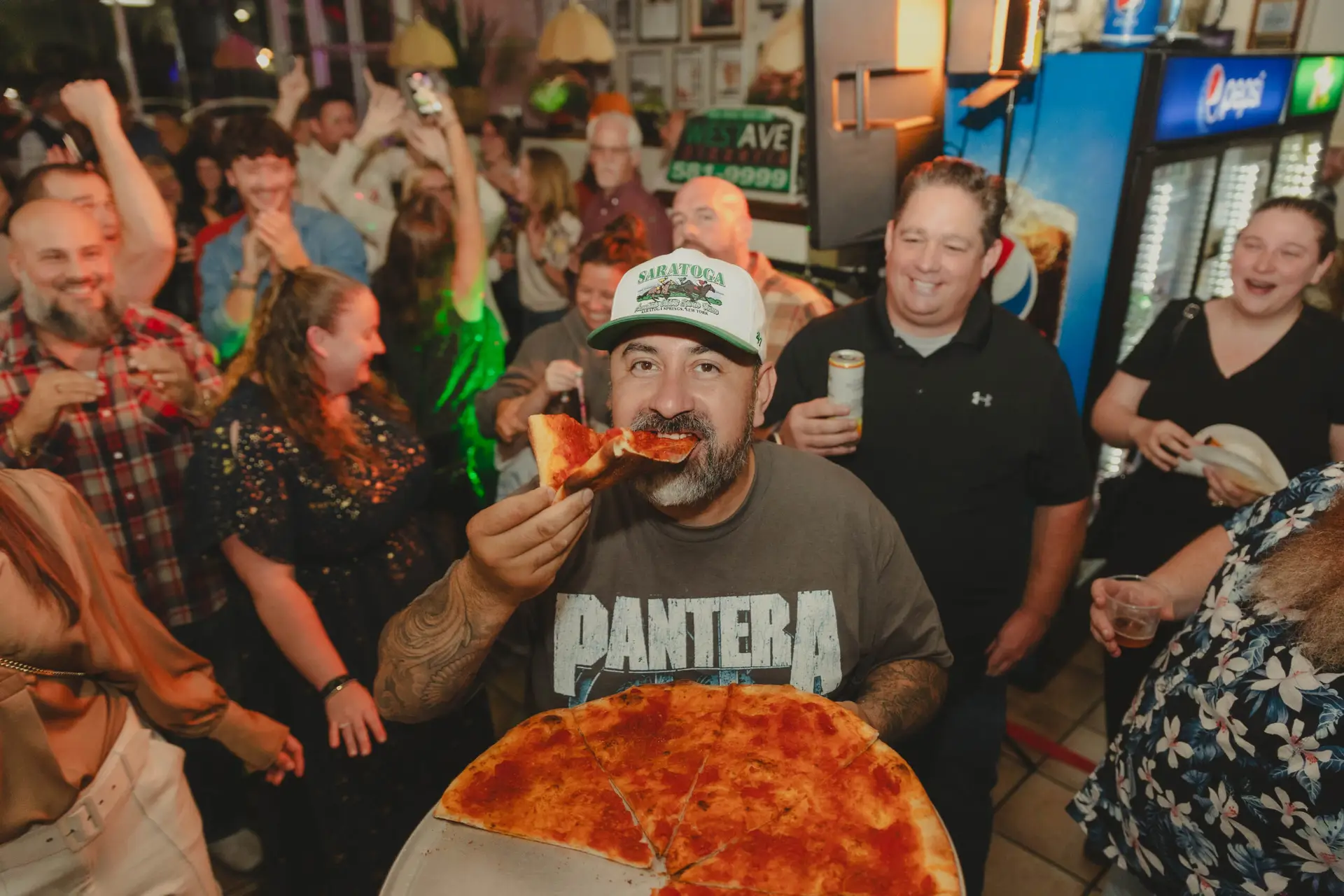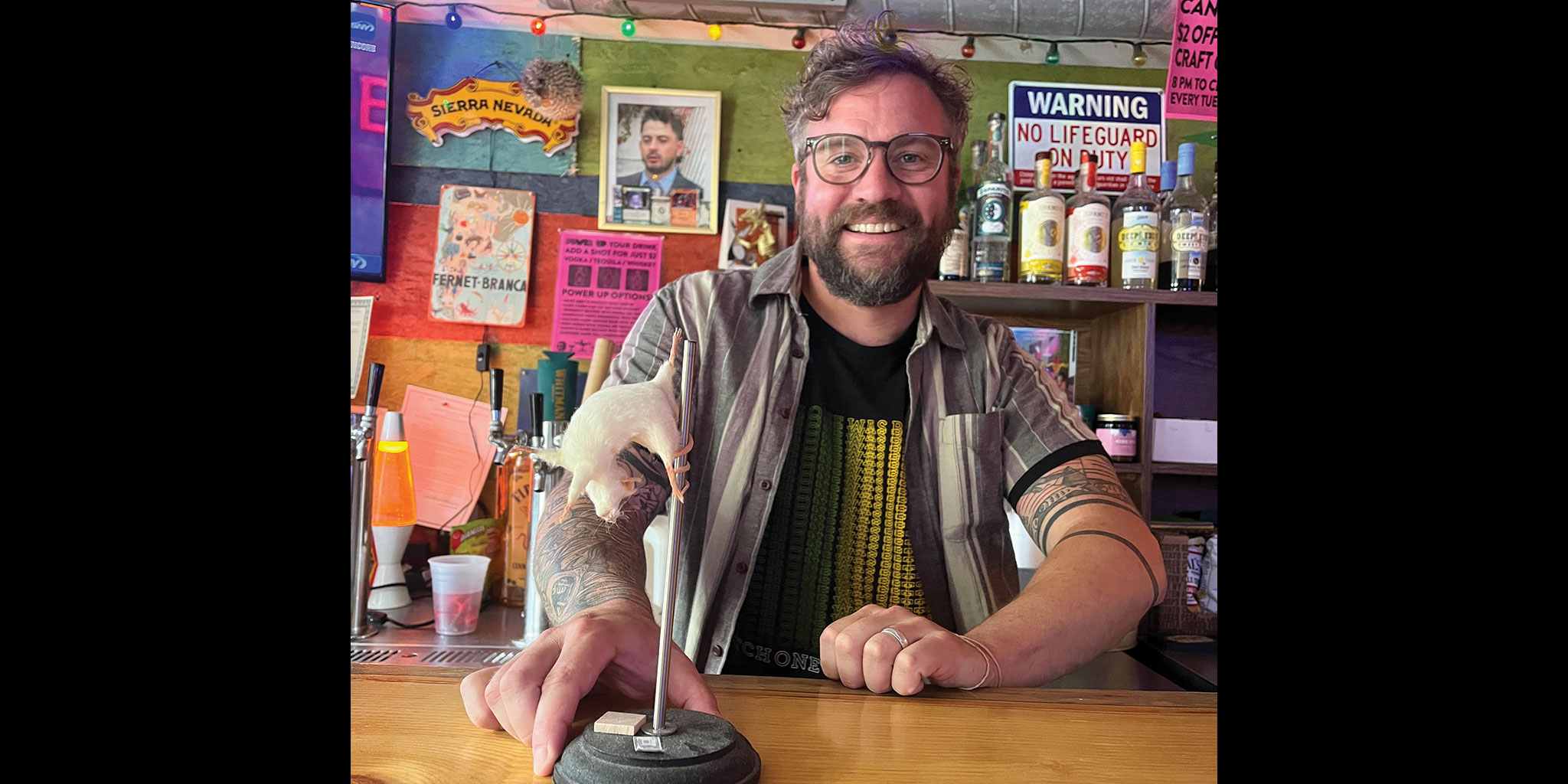In mid-March, Niskayuna native Lindsay O’Connor, who owns the athleisure boutique Irene Leigh in the Saratoga Marketplace, faced a quandary. Due to the COVID-19 outbreak and soon after, New York Governor Andrew Cuomo’s mandatory lockdown, she was forced to close her shop indefinitely, with the possibility of having to let her entire staff go. (Full disclosure: I was one of her part-time employees; I started off at Irene Leigh as an intern in 2018, while I was at Skidmore College, and worked weekends as a sales assistant until this past March, when Skidmore shut down, and I was sent home.) Instead of sitting idly by, O’Connor immediately took action. “From the very first week that we closed—at the time when everyone thought they’d only be closed for two weeks, and it turned into two months—I was like, ‘I’m going to make the most of this terrible situation,'” says O’Connor. “I spent every single day either at the store building up my website or building out my online presence and social media strategy. I started email marketing; I hadn’t really been doing much of that. I was like, ‘I’m not going to just sit on my couch and let this time go. I really have to be as proactive as possible for the health of the business and also for the future of it.'”
Besides using the time to build out her e-commerce business, she also had her employees on her mind. And that’s when she came across an intriguing grant opportunity. It turned out that Sara Blakely, entrepreneur and founder of intimate apparel brand Spanx, had launched an initiative through her Spanx Foundation, in partnership with nonprofit Global Giving, called The Red Backpack Fund. Blakely’s foundation had donated $5 million to support women entrepreneurs in the wake of the COVID-19 crisis, and Global Giving had been tasked with distributing that sum in the form of 1,000 gifts of $5,000 to women-owned or -led small businesses throughout the US. The donations would be disbursed from April to September.
In order to be considered for the grant, O’Connor had to submit an application, including a short video demonstrating how her business had been impacted by the COVID-19 crisis. Rather than focusing on how much the grant would help her personally, O’Connor chose to focus on the women whom she employed and how the money might help them achieve some stability during a time of growing financial hardship. “I thought about what I wanted to spend the money on,” says O’Connor. “I didn’t want to say, ‘I need this $5,000 to get more goods in the store or pay rent.’ I told [the foundation], ‘I’m going to use this money to hire my staff back.’ I was very clear that 100 percent of this money would go towards supporting the other women in my life, so that they could have at least a little stream of income over the summer and the experience that I had promised them of working in the store.”
By May, while COVID cases in New York crested the 350,000 mark and the Capital Region was given the green light to enter phase one of reopening, O’Connor got some life-changing news: She’d been awarded one of the coveted Spanx Foundation grants. “I pretty much immediately went next door to Max London’s and bought a bottle of rosé for [me and another employee],” says O’Connor of the day she was awarded the grant. “[Then] I let my [employees] know, because they didn’t necessarily know that I had applied for it. This was for them; it was a gift to me to be able to follow through on the promise I had made them to support them with working hours and income over the summer.” As a self-made businesswoman, the grant also reenergized her greatly. “I [pictured] this team of women that were going through applications saying, ‘We believe in you, we want to support you, you’re doing something really cool, and we think that you should have a fighting shot to keep doing it.’ Just that—someone else recognizing in you that you’re doing great stuff—is pretty cool.”
Opening Irene Leigh had been nothing short of a girlhood dream for O’Connor, having come up with the name for the shop as a child (it’s a combination of her and her cousin’s middle names). After spending a decade working at big-box fashion brands such as Old Navy, Banana Republic and Talbots—the last of which landed her in Boston—O’Connor moved back to the Capital Region in 2018, and ultimately decided to open her own boutique that focused on athleisure (besides being a fashionista, O’Connor is also a certified yoga instructor). That was February 2018. By that fall, she’d expanded her boutique, moving to a larger unit in the Saratoga Marketplace and building out her product lines to include menswear and a larger selection dedicated to beauty and wellness accessories.
That entire time, O’Connor never forgot about, as she puts it, her “girls.” “My mantra has always been ‘share your stage,'” she says. “It comes from a CMA Awards [speech given by] Kelsea Ballerini, who talked about how Carrie Underwood had given her the chance to perform as an opener and at concerts here and there, and that gave her the opportunity to be signed and share her music. I loved that sentiment. I thought, ‘How can I continue to share my stage?’ That’s the way it has been since I opened the store, having [in-store] popups of other female-run businesses that want to share what they’re doing; or having fitness events, partnering with different studios in the area.”
Besides peace of mind and the ability to hire back her staff, the Spanx Foundation also sent O’Connor a stylish red Herschel backpack (it isn’t called The Red Backpack Fund for nothing!), as well as a one-year subscription to online lesson repository MasterClass, which features classes by a number of celebrities—including Blakely herself. “I’m so excited to sink my teeth into that,” says O’Connor. “I want to take every single class, A-Z.” Now that Irene Leigh is back open to customers—not to mention the fact that its mothership, the Saratoga Marketplace, has gotten a much-needed makeover—O’Connor is bullish about the boutique’s future. “We moved into this bigger space [last] October,” says O’Connor, “so we really only had five months before we had to close. I feel like there’s still so much [room to] grow within this space.”















